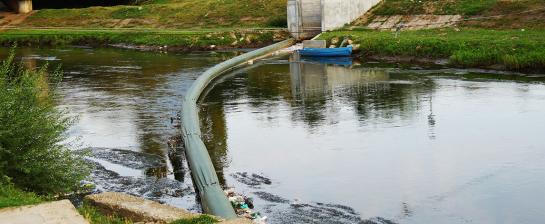A growing body of scientific evidence documents plastic's harmful environmental and human health impacts throughout its life cycle, spanning production to its post-consumption state as pollution or recycled material.
Plastics have been found in the deep sea, the atmosphere, in Arctic sea ice, and in human blood, placenta, and feces—and vulnerable communities and countries are disproportionately exposed. Many scholars consider plastic to be a persistent organic pollutant because plastic waste does not readily degrade in the environment, but instead generates microplastics and nanoplastics.
Until recently, the plastics crisis has been characterized exclusively as a marine debris issue—with estimates suggesting at least 11 million metric tons of mismanaged plastic waste enter the oceans annually. However, evidence is increasingly showing that plastic has harmful impacts across its entire life cycle. Leakage into the environment occurs during extraction and refining of petrochemicals that become plastic products, as well as during consumption and disposal.
To develop and implement solutions for this global crisis, a wide range of actors—including policymakers, private companies, communities, and researchers—will need to take action, both individually and collectively.
The Nicholas Institute is working with partner organizations to help identify how decision-makers on the local, national, and international levels have responded to this challenge. The Plastics Policy Inventory is a searchable database of public policies introduced around the world since 2000 that aim to reduce plastic use and waste. The companion Plastics Policy Effectiveness Study Library links studies of policy effectiveness to specific documents in the inventory to highlight measured outcomes of implemented policies and, in some cases, how they are leading to unintended consequences.
In addition, Nicholas Institute experts are part of Duke University’s Plastic Pollution Working Group, a robust community of researchers, students, and alumni that is conducting interdisciplinary research on issues associated with plastic across its life cycle—and developing potential solutions.










